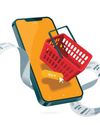
Started in the year 2000, Arambagh's Foodmart chain of convenience retail stores are a household name in East India. Based on the international concept of 7-11 (stores that are open from 7 am to 11 pm, seven days of the week), the chain has 80 stores in 24 cities of West Bengal. Out of these, 43 stores are in Kolkata, 26 in tier 2 cities and 11 in North Bengal (including Siliguri, Jalpaiguri and Malda).
The average size of the no-frills food and grocery stores is 600 sq. ft.-1000 sq. ft. Main items are fast-moving consumer goods like grocery and staples, toiletry, confectionery, frozen products, personal care, household care, icecream, office and school stationery.
The First Store
The first Foodmart was converted from an existing 'Arambagh's Chicken' chain of stores selling processed and ready-to-eat chicken items. At the time, the concept of shopping under one roof was new, which helped the food chain gain instant acceptance. The popularity of the Arambagh's Chicken brand too helped its case.
Slowly, the company started opening more stores. In 2012, the Foodmart division with 25 stores and a warehouse was incorporated into a separate company named Arambagh's Foodmart Pvt. Ltd. In 2014, the chain ventured to tier 2 cities of West Bengal, and in 2016 the brand established its presence in the North Bengal retail arena by opening stores in Siliguri, Jalpaiguri and Malda.
In an exclusive interaction with IMAGES Retail, Biyas Roy, Executive Director, Arambagh's Foodmart talks about the Kolkata-based chain's focus on offering convenience to customers in everything from its store locations to its checkout processes and home delivery.
Edited Excerpts:
What sets you apart from competitors?
Diese Geschichte stammt aus der November 2023-Ausgabe von Images Retail.
Starten Sie Ihre 7-tägige kostenlose Testversion von Magzter GOLD, um auf Tausende kuratierte Premium-Storys sowie über 8.000 Zeitschriften und Zeitungen zuzugreifen.
Bereits Abonnent ? Anmelden
Diese Geschichte stammt aus der November 2023-Ausgabe von Images Retail.
Starten Sie Ihre 7-tägige kostenlose Testversion von Magzter GOLD, um auf Tausende kuratierte Premium-Storys sowie über 8.000 Zeitschriften und Zeitungen zuzugreifen.
Bereits Abonnent? Anmelden

Building the Midmanagement is Critical in a Scaling Organisation
Nirav Jagad, Chief People Officer of Sugar Cosmetics speaks about ensuring the right! opportunities for the right talent in a complex omnichannel organisation that is on a fast track to growth

Uppercase Upping the Ante
Travel gear brand Uppercase is upgrading the standard of luggage in India through innovative approach and prodcuts and sustainable practices

The Strategy is to Go City by City and Saturate Each
Gerard McGurk, Head of Retail and Commercial Operations at Index Living Mall and Mahesh M, CEO, Creaticity speak about Thailand's numero uno furniture brand's strengths, its India entry and strategy

Design and Experience Differentiate Indriya from Competitors
Sandeep Kohli, CEO of Aditya Birla Jewellery’s Indriya about the brand’s strengths, strategies and aspirations

At Good Glamm, AI Chatbots Have Slashed Workload by 70-80%
Deep Ganatra, Chief Product & Technology Officer (CPTO), The Good Glamm Group sheds light on the role of technology in the beauty and wellness industry and its impact on personalisation

How Blinkit, Swiggy Instamart, Zepto and Others are Redefining Shopping
A quick snapshot of India’s quick commerce landscape highlighting key players, challenges and opportunities

Electronics and Q-commerce: A Marriage of Convenience
Why more and more electronics and gadget brands are taking to q-commerce

5 ways D2C Brands Can Leverage the Power of Technology
The direct-to-consumer (D2C) market in India is at an exciting juncture, with brands redefining how they operate, innovate, and engage with consumers. But what does the future look like for these brands as they adopt technology?

The Business of Offering Immersive Experiences
Shopping centers are using immersive experiences to attract more shoppers and boost business

5 ways D2C Brands Can Maintain the Growth Momentum
D2C brands should embrace a customer-first mindset, leverage technology, and know when to expand offline to keep the growth momentum going